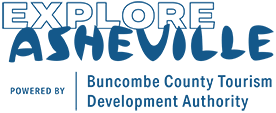
- This event has passed.
African American Heritage Trail Community-Led Listening Workshop – January 11
Saturday, January 11, 2020, 10:00 am - 11:30 pm
Help shape the themes, content, design and route of Asheville’s first African American Heritage Trail
We use stories to make sense of the world. How will Asheville tell an inclusive story of its history?
Dina Bailey has explored that question. She’s an expert on inclusive history. Her experience includes work with the National Center for Civil and Human Rights, the National Underground Railroad Freedom Center and the International Coalition of Sites of Conscience.
In January, Dina led talks about Asheville’s first African American Heritage Trail. The community was invited to help shape the themes, content, design and route of the trail by participating in one of the sessions led by Bailey.
Four listening session workshops were held in January
- Thursday, January 9, 5:30 – 7:00 p.m., at Friendship Center, 142 Shiloh Rd., Asheville, NC 28803
- Friday, January 10, 12:00 – 1:30 p.m., at Stephens-Lee Recreation Center, 30 George Washington Carver Ave, Asheville, NC 28801
- Friday, January 10, 3:00 – 4:30 p.m., at Stephens-Lee Recreation Center, 30 George Washington Carver Ave, Asheville, NC 28801
- Saturday, January 11, 10:00 – 11:30 a.m., at the Explore Asheville offices (former Allen High School, across from Berry Temple), 27 College Place, Asheville, NC 28801
More about this project
In addition to attending a listening session, the public is invited to complete an online survey.
The sessions and survey are part of an engagement process with community advocate Kimberly Hunter of Asheville. The trail was featured at the Creative Sector Summit kickoff at the YMI Cultural Center in May and at the African Americans in South Appalachia Conference at UNC Asheville in October. Design and construction are slated for 2020-2021.
The Buncombe County Tourism Development Authority (BCTDA) is funding the project through its Tourism Product Development Fund grant program. River Front Development Group, an African American founded nonprofit, submitted the grant application in 2018. BCTDA will maintain the trail markers as part of its Wayfinding Signage Program. For more information, visit: ashevillecvb.com/african-american-heritage-project.
ABOUT BUNCOMBE COUNTY TOURISM DEVELOPMENT AUTHORITY & EXPLORE ASHEVILLE
Established by legislation in 1983, the Buncombe County Tourism Development Authority is a public authority with a public purpose that enhances the economic vitality of Buncombe County, benefiting local residents. The BCTDA invests occupancy tax revenue to attract some 3.9 million people who stay overnight in Buncombe County lodging facilities, providing customers for local businesses. In total, overnight visitors spend $2 billion at local businesses annually, supporting one in seven jobs in Buncombe and generating $119 million in state and local tax revenues, for a total economic impact of $3.1 billion.
Twenty-five percent of the occupancy tax paid by visitors goes to the Tourism Product Development Fund (TPDF), which is administered by the Buncombe County Tourism Development Authority. The BCTDA has provided TPDF grants totaling $44 million to 39 community projects since the fund’s inception in 2001. TPDF-supported projects include the Enka Sports Complex, Pack Square Park, Asheville Community Theater, Asheville Art Museum, infrastructure in the River Arts District, WNC Nature Center, the Woodfin Greenway and Blueway, the Center for Craft, Asheville Museum of Science, The Wortham Center for Performing Arts, WNC Farmers Market, renovation of the U.S. Cellular Center, and the African American Heritage Trail connecting historic African-American communities in downtown Asheville.
The BCTDA also oversees the Explore Asheville Convention & Visitors Bureau (CVB), which executes an extensive strategic marketing and sales program that inspires visitation and group meetings/travel. The CVB also showcases and offers free marketing services to 1,200 local businesses that rely on visitors. It is located in renovated space in the former Allen High School, which once served as a private school for African American students.
